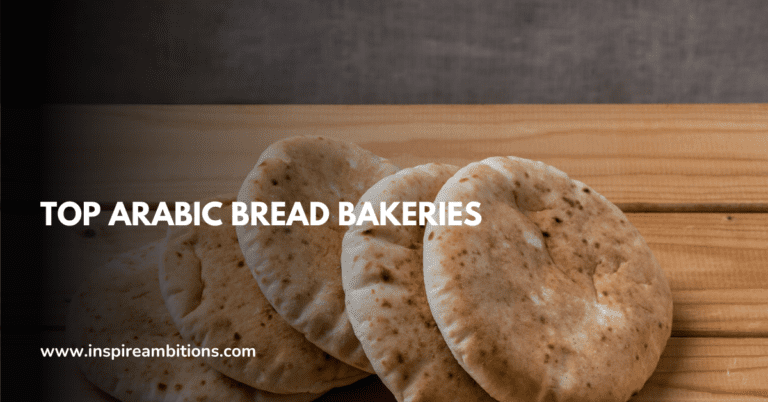Essential Meal Prep Tips for Beginners
Meal prepping is a buzzword in today’s fast-paced world. It’s a simple concept that can bring significant changes to your lifestyle.

But what exactly is meal prep? It’s the practice of preparing meals or ingredients ahead of time. This can range from chopping vegetables to cooking entire meals.
The benefits of meal prepping are numerous. It can save you time, reduce stress, and help you eat healthier. It’s also a great way to control portion sizes and manage your budget.
This guide is designed to help beginners navigate the world of meal prep. We’ll cover everything from the essential cooking supplies to quick and easy recipes.
Whether you’re a busy professional, a student on a budget, or someone looking to make healthier food choices, this guide has something for you. Let’s dive into the world of meal prep and discover how it can transform your daily routine.
Understanding Meal Prep and Its Benefits
Meal prep involves planning and preparing meals in advance. This practice can range from portioning out ingredients to cooking entire dishes for the week.

By dedicating a few hours to meal prep, you can streamline your daily routines. This preparation not only saves you time but also simplifies your mealtime decisions. With meals ready to go, you’ll be less tempted by takeout and more likely to eat what you’ve prepared.
The advantages of meal prepping extend beyond convenience. Here are some key benefits:
- Improved portion control and dietary adherence
- Reduction in food waste and grocery costs
- Enhanced variety and creativity in meals
- Increased confidence in cooking
Meal prep can fit various dietary preferences and lifestyles. Whether you desire healthy dinners or need easy-to-grab snacks, meal prepping can accommodate it all.
What is Meal Prep?
Meal prep is the organized approach to planning and preparing meals ahead of time. It encompasses a range of activities, from pre-cooking components to full meal assemblies.
This strategy ensures you always have ready-to-eat meals. It can cater to any dietary style and personal schedule. Meal prep is not only about saving time but also about fostering a more disciplined eating routine.
Why Meal Prep? Health and Lifestyle Benefits
Meal prep offers numerous health benefits. By planning your meals, you gain control over ingredients, promoting healthier eating habits.
One major perk of meal prep is the enhancement of portion control, helping maintain a balanced diet. Pre-planned meals also tend to be more nutritionally balanced compared to spur-of-the-moment choices.
- Boost in nutritional intake
- Improved portion sizes
- Less reliance on processed foods
Additionally, meal prepping reduces mealtime stress, giving you more time to enjoy other activities. It’s a lifestyle change that supports wellness and dietary goals while simplifying your daily routine.
Getting Started with Meal Prep
Embarking on your meal prep journey can be an exciting venture. It all begins with setting simple, achievable goals. This approach ensures you don’t feel overwhelmed and can gradually build confidence.

Begin by identifying a few meals you want to prep for the week. Focus on meals that you enjoy and are simple to make. This will help keep the process enjoyable and less stressful.
Here’s a basic plan to kick off your meal prep journey:
- Choose recipes that require minimal prep.
- Allocate a dedicated time each week for meal prepping.
- Keep track of your progress and adjust as necessary.
With the right mindset and tools, meal prepping can quickly become a natural part of your routine. Take small steps to make the transition seamless and enjoyable.
Setting Realistic Meal Prep Goals
It’s vital to begin with realistic expectations. Start by setting manageable goals, such as preparing meals for two days initially.
This gradual approach helps you acclimate without feeling buried under too many tasks. As you gain confidence, you can scale up to a full week.
Ensure your meal prep goals align with your lifestyle and dietary needs. Tailoring these targets can prevent burnout and promote sustainability in your routine.
Essential Cooking Supplies for Meal Prep
Having the right cooking supplies can make a big difference in your meal prep journey. Equipping your kitchen with the basics ensures efficiency and effectiveness.
Here’s a list of essential items for meal prep:
- Sharp knives and sturdy cutting boards
- Measuring cups and spoons for accuracy
- Durable meal prep containers for storage
Investing in quality supplies saves time and reduces frustration. These tools will assist you in prepping meals quickly and efficiently, ensuring a smooth meal prep process from start to finish.
Planning Your Meal Prep
Effective meal prep starts with careful planning. Without a plan, the process can quickly become chaotic and inefficient. Start by deciding on the meals you want to prepare for the week.

Once you’ve chosen your meals, create a meal prep calendar. This tool will help keep you organized and on track. Having a visual representation of your meal schedule can simplify the process greatly.
Consider the following steps when planning your meal prep:
- Select recipes and write them down.
- Allocate specific days and times for cooking.
- Create a comprehensive shopping list.
Using these steps can streamline your meal prep, ensuring you have all the ingredients and time necessary. Consistency and preparation are key to sustaining meal prep as part of your routine.
Creating a Meal Prep Calendar
A meal prep calendar serves as your roadmap. It helps you visualize your meals for the week. By organizing each meal, you avoid last-minute decisions and added stress.
Start by assigning specific meals to each day of the week. This way, you know exactly what to cook and when. Updating your calendar weekly ensures you adapt to any changes or new preferences.
A well-planned calendar keeps your meal prep efficient, organized, and ready for any adjustments. It’s a powerful tool that simplifies your weekly meals and reduces decision fatigue.
Grocery Shopping for Meal Prep
Grocery shopping is an essential part of meal prep. An organized shopping trip can save you time and reduce unnecessary purchases. Begin by making a detailed shopping list based on your meal prep calendar.
Stick to your list to avoid impulse buys. This helps in staying within your budget and adhering to your meal plan. It also ensures you purchase everything needed for your chosen recipes.
Consider the following tips for efficient grocery shopping:
- Organize your list by section of the store.
- Shop during off-peak hours to avoid crowds.
- Choose fresh, seasonal produce for better taste and savings.
With these strategies, grocery shopping becomes a streamlined and cost-effective process. It lays the foundation for a successful meal prep week, minimizing stress and maximizing efficiency.
Budget-Friendly Meal Prep Strategies
Creating meals on a budget can be both simple and satisfying. Meal prep is an excellent way to stretch your grocery dollars while ensuring quality nutrition. With some strategic planning, you can enjoy delicious meals without breaking the bank.

Focus on purchasing ingredients that are both affordable and versatile. These can be used across multiple recipes, maximizing their utility. Think of items like grains, beans, and root vegetables.
To keep costs low, utilize some of these budget-friendly strategies:
- Select store-brand over name-brand items.
- Take advantage of sales and discounts.
- Use a grocery app to track deals and manage lists.
These tactics can significantly reduce your shopping bill. They’re essential for anyone looking to maintain a cost-effective meal prep routine. Plus, you’ll reduce food waste and enjoy a variety of meals.
Saving Money with Bulk Purchases and Seasonal Ingredients
Purchasing in bulk is a powerful way to decrease your food costs. Items like rice, pasta, and oats have a long shelf life and are perfect for bulk buying. This practice also cuts down on packaging waste, supporting a more sustainable lifestyle.
Seasonal ingredients not only taste better but are often less expensive. By focusing your meal prep around what’s in season, you can enjoy the freshest produce. This approach varies your diet and keeps meals exciting.
Adjust your recipes based on what’s plentiful locally during each season. These small changes can lead to big savings while promoting a healthier diet.
Reducing Food Costs with Smart Meal Prep Choices
Strategic meal choices can help trim your grocery expenses significantly. Begin by selecting recipes that share common ingredients. This reduces the number of different items you need to purchase.
Here are a few smart meal prep choices to consider:
- Opt for meatless meals several times a week.
- Use leftovers creatively to invent new dishes.
- Prep extra portions to reduce cooking frequency.
These techniques allow you to stretch your budget without sacrificing variety or nutrition. In addition, they encourage creativity in the kitchen. Incorporating these smart choices ensures that your meal prep remains financially sustainable and engaging.
Quick and Easy Meal Prep Recipes
Meal prep doesn’t have to be complicated to be delicious. With the right recipes, you can whip up meals in no time. These quick and easy options are perfect for busy schedules.
Consider starting with simple recipes that use straightforward ingredients. You’ll spend less time in the kitchen and more time enjoying your meals. From vibrant salads to wholesome grain bowls, the choices are endless.

Cooking in batches saves time and adds variety to your weekly menu. By preparing several servings at once, you minimize the daily hassle of meal-making. This approach is great for maintaining motivation and consistency.
Here are some key recipes to kickstart your meal prep journey:
- Overnight oats with fruit and nuts.
- Grilled chicken and vegetable wraps.
- Quinoa and black bean chili.
Each of these dishes is quick to prepare and stores well in meal prep containers. By incorporating these recipes, you ensure you’re always ready with tasty meals at hand.
Breakfast Ideas
A nutritious breakfast sets the tone for the day. It’s easy to prep your morning meals in advance. Popular options include overnight oats, chia pudding, and smoothies.

Overnight oats can be customized with fruits, nuts, or seeds. Chia pudding is packed with fiber and can be flavored with vanilla or cocoa. For convenience, create smoothie packs by portioning fruits and greens into bags to blend fresh each day.
With these breakfast ideas, starting your day with energy is both simple and satisfying.
Lunch and Dinner Options
Prepping lunch and dinner can simplify busy weekdays. Make recipes that hold up well for multiple days, like stews or stir-fries.

Grain bowls are incredibly versatile, with ingredients like quinoa, roasted vegetables, and proteins like chicken or tofu. Hearty soups or stews, such as lentil or minestrone, can be prepared in large batches. They offer variety without much extra effort.
These dishes ensure you have home-cooked meals ready, offering both comfort and health.
Healthy Snacks for Meal Prep
Healthy snacks are a must to curb hunger between meals. Preparing them in advance keeps you from reaching for unhealthy options.
Here are a few snack ideas:
- Carrot sticks with hummus
- Mixed nuts and dried fruit
- Greek yogurt with berries
These snacks are portable, quick to prepare, and satisfying. With these bite-sized treats, you’re always ready to fuel up smartly during the day.
Portion Control and Dietary Considerations
Meal prep offers an effective way to manage portion sizes. It’s easier to avoid overeating when your meals are pre-measured. This practice can help with both weight management and maintaining a balanced diet.
Using portion control prevents you from consuming more calories than needed. It also helps you keep track of macronutrients. This is crucial for meeting health goals.
Here are some tips for portion control:
- Use small plates or bowls to control portions.
- Measure servings using cups or a kitchen scale.
- Divide meals into individual containers for the week.

Keeping portion sizes in check ensures your meals are nutritious and satisfying. By planning meals ahead of time, you create a streamlined path to healthier eating habits.
Pre-planned Meals for Weight Management
Organizing meals in advance supports weight goals by controlling what you consume. Pre-planned meals help avoid spontaneous, unhealthy food choices. You know exactly what and how much you’re eating.
Plan meals around lean proteins, vegetables, and whole grains. These food types promote fullness and maintain energy levels throughout the day. Prepping meals also reduces the temptation to eat out, where calorie counts are often high.
Consistently applying this strategy makes maintaining or losing weight more achievable. With careful planning, each meal serves your health intentions.
Adapting Meal Prep to Special Diets
Meal prep works well with various dietary needs. Tailor your meals to fit any specific requirements you might have.
Consider these special diet options:
- Gluten-free: Use ingredients like quinoa and rice.
- Vegan: Focus on beans, lentils, and plant-based proteins.
- Keto: Emphasize low-carb foods like cauliflower and avocados.
Adjusting meal prep to suit your diet is manageable and enhances adherence to dietary goals. You can easily prepare dishes that respect your nutritional preferences and restrictions.
Time-Saving Meal Prep Strategies
Streamlining your meal prep routine can save precious time during busy weeks. Effective strategies minimize effort while maximizing productivity. The key is to prepare in advance and simplify where possible.
Batch cooking is one powerful method. It involves making large quantities of staple foods, like grains or proteins, in one go. These items can be used in different meals throughout the week.
Using multipurpose ingredients is another smart approach. Ingredients like roasted vegetables or cooked chicken serve several recipes, offering variety without additional prep.
Here are some time-saving tips:
- Chop vegetables in bulk and store them in the fridge.
- Cook proteins in batches and portion them out.
- Use kitchen gadgets like slow cookers for hands-off preparation.

Implementing these strategies will help you enjoy healthy, homemade meals even on hectic days. With reduced daily kitchen time, you’ll have more room for relaxation and other activities.
Batch Cooking and Multipurpose Ingredients
Batch cooking simplifies your weekly routine. By preparing a large quantity of food at once, you save time on daily cooking. For instance, baking multiple chicken breasts can provide protein for multiple meals.
Multipurpose ingredients add flexibility. Cooked vegetables can be used in salads, wraps, or omelets. Think about foods that serve different dishes, reducing the need for additional prep work.
These methods not only save time but also reduce stress related to daily meal decisions. Batch cooking and versatile ingredients are your allies in maintaining a healthy diet without spending hours in the kitchen.
Freezer-Friendly Meal Prep
Freezer-friendly meal prep extends the life of your prepped dishes. By freezing meals, you can prepare food well in advance and defrost whenever needed. This practice prevents spoilage and ensures ready meals on busy days.
Consider the following freezer-friendly tips:
- Use airtight containers or bags to prevent freezer burn.
- Label meals with date and contents for easy identification.
- Portion meals individually to simplify defrosting.
Freezing prepped dishes reduces cooking frequency and keeps meals fresh. With a stocked freezer, you’ll always have nutritious options at your fingertips. This not only saves time but also helps manage your diet conveniently.
Storing and Organizing Your Meals
Efficient storage is crucial for maintaining the freshness of your prepped meals. Proper organization saves time and reduces food waste. It also ensures that your meals remain safe and nutritious.
Start by planning a dedicated space in your fridge or pantry for your meal prep items. This will help keep everything accessible and easy to find.
Meal prep containers should be stackable to maximize space. Keep similar types of meals in the same area to avoid rummaging through your storage.
Consider the following storage tips:
- Rotate meals based on their shelf life.
- Keep a list of what’s stored in the fridge and freezer.
- Use transparent containers for easy visibility.

Adopting these practices will streamline your meal prep process, making it more efficient and less stressful. With organized storage, you’ll enjoy seamless meal preparation week after week.
Choosing the Right Meal Prep Containers
Selecting the right containers is vital for successful meal prep. They not only keep your food fresh but also prevent spills and leaks. Different materials offer unique benefits depending on your needs.
Glass containers are durable and can go from fridge to microwave. They’re great for reheating and are easy to clean.
Plastic containers are lightweight and often less costly. For best results, choose BPA-free options. They are convenient for freezing meals due to their flexibility.
Consider also the size of the containers. Opt for various sizes to accommodate different portions and types of meals. This ensures versatility in your meal storage.
Labeling and Food Safety
Proper labeling is a simple step that enhances food safety. Label each container with the date of preparation. This practice helps you track freshness and prevent spoilage.
Consider including the type of food and any special storage instructions. This ensures everyone in the household knows what to expect.
Here’s a quick labeling checklist:
- Date of prep
- Food content
- Special instructions (if any)
Labeling, combined with proper storage, ensures safe and healthy meals throughout your week. It’s a habit that pays off by reducing food waste and maintaining meal quality.
Overcoming Meal Prep Challenges
Meal prep can be daunting without strategies to tackle common challenges. Even seasoned preppers encounter obstacles. Addressing these issues helps maintain momentum and avoid burnout.
One major challenge is maintaining variety in meals. Boredom can lead to unhealthy food choices. Incorporating diverse flavors and cuisines keeps your menu exciting and enjoyable.

Sticking to a routine is another hurdle. Consistency takes discipline but reaps rewards. Establishing a fixed schedule can help form a habit. Making meal prep a group activity also provides additional motivation and fun.
Consider these tips for overcoming common meal prep challenges:
- Try new recipes regularly.
- Set specific days and times for meal prepping.
- Involve family or friends for shared motivation.
Keeping Meal Prep Interesting
Avoid meal fatigue by mixing things up. Experimentation is key to maintaining enthusiasm. Try incorporating international cuisines into your meal prep routine. This allows you to explore different tastes and cooking techniques.
Introduce seasonal ingredients to add freshness and variety to your meals. Seasonal produce often offers better flavor and nutrition, keeping your meals vibrant.
Another way to keep things interesting is by rotating core ingredients. Use them in different meal configurations. This approach prevents monotony without deviating from your nutritional goals.
Dealing with Schedule Changes and Appetite Variations
Life is unpredictable, which can disrupt meal planning. Flexibility is crucial in adapting to such changes. Always have quick meal options on hand for busy days.
Keep this quick-reference list handy to manage changes:
- Refrigerate or freeze leftovers for surprise meals.
- Use simple swap ingredients for quick preparation.
- Adjust portion sizes based on hunger levels.
Being prepared for variability ensures that your meal prep remains effective and stress-free, no matter the situation.
Conclusion and Next Steps
Embarking on your meal prep journey opens doors to a healthier, more organized lifestyle. You’ve learned essential tips to simplify meal prepping. Now it’s time to put them into action.
Start small and build your routine gradually. Focus on perfecting one aspect of meal prep before tackling everything at once. This approach minimizes overwhelm and ensures sustainable growth.
Remember, meal prep is an evolving process that adjusts to your changing needs and preferences. Stay flexible and open to experimentation as you refine your skills.
Staying Motivated and Consistent
Consistency is key in reaping the long-term benefits of meal prepping. Set achievable goals to maintain motivation. Track your successes and celebrate small victories to boost morale.
Downloadable Resources and Checklists
Use structured tools to enhance your meal prep routine. Explore downloadable resources such as meal prep planners and grocery checklists. These tools can simplify planning and ensure a streamlined experience.
Recursos adicionales
To enhance your meal prep experience, leverage additional resources available online. These tools can offer guidance, inspiration, and time-saving tips. They help streamline the entire process from planning to execution.
Meal Prep Apps and Online Tools
Numerous apps are designed to aid in meal prepping. They offer recipe suggestions, grocery lists, and even nutritional tracking. Some popular ones include MealPrepPro and Yummly, each catering to different dietary needs.
Online resources, like food blogs and recipe websites, provide a vast array of ideas to keep your meals exciting. They often include step-by-step guides and customizable meal plans, ensuring you’re never short on inspiration.






